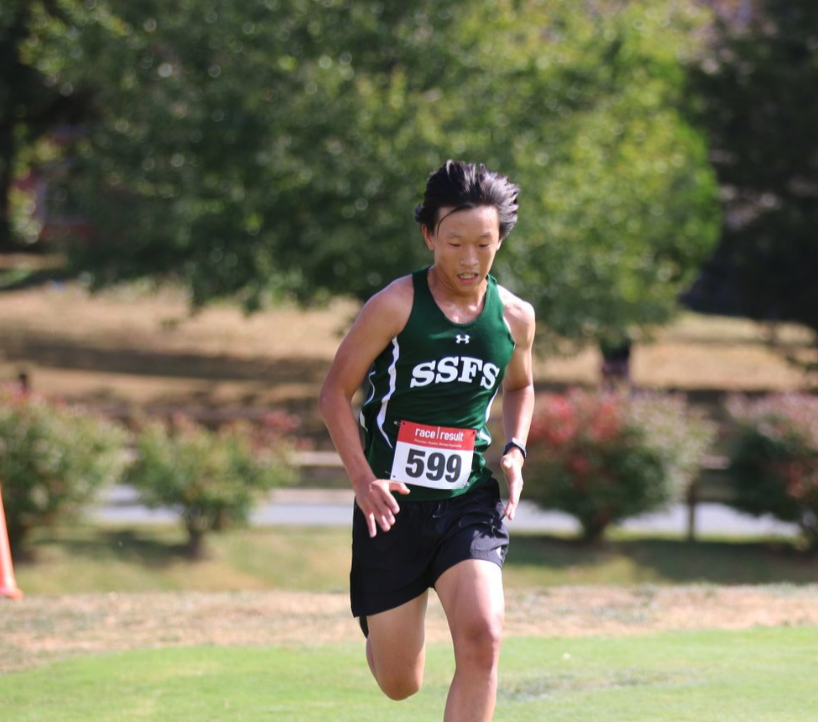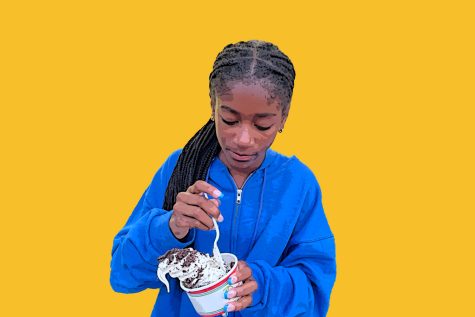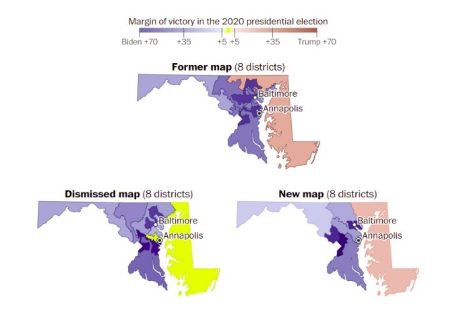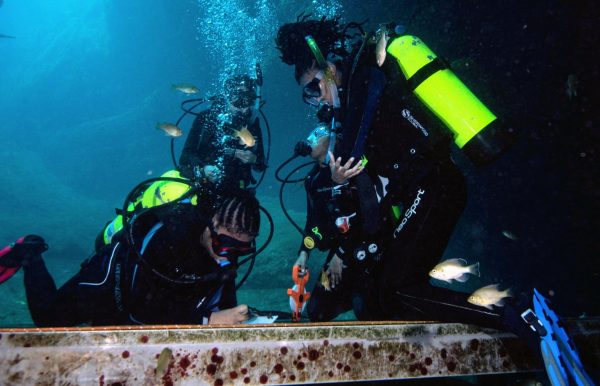Running from Isolation – How SSFS Track Athletes are Staying Fit
Joseph Chae running for greatness.
How do we jump over this new hurdle without falling down? Covid-19 has caught humanity off guard, and the last couple of months have been a hard adjustment for everybody. The Coronavirus has changed peoples’ approaches to almost everything, ranging from social interactions, to diet, to life.
Ever since the Sandy Spring campus closed in March, students, teachers, and coaches have been cooperating to ensure that we stay focused on school, while maintaining some level of fitness and activity. Student athletes have also been encouraged to follow fitness routines developed by their coaches. For example, Coach Sanjay Ayres has been working with the track team to prepare for the reopening of school. Coach Sanjay has given the sprinters, distance runners, and throwers 3-week training schedules, designed for them to push what they specialize in. Their routines include Coach Sanjay’s strength plan, lower body workouts, and shin splint prevention exercises. After an intensive few days of sprinting, jogging, lifting, and stretching, athletes end their week off with a recovery session.
The transition from team to individual training has had drastic effects on almost all runners. While some individuals report that they are training more vigorously than before, others have slowed their training momentum.
11th grade runner Joseph Chae says that he is training as much as he possibly can, running at least six miles each session, and not letting anything impede on his objective of becoming an ultimate running machine. Other athletes are settling themselves into this new way of life with patience and lockdown fortitude, pacing and adapting their running ethic so they will remain fit when they (finally) emerge from quarantine.
As a track runner myself, I have felt a big change in my attitude towards training. Although I cannot speak for other members of the track team, I have found that with the transition to virtual school, the practice of ‘social-distancing’, and the global recommendation to stay inside, it has been challenging to maintain the same athletic work ethic. But still, I am finding creative methods to remain as devoted as I had been at school.
To better understand how SSFS track athletes are jumping over the coronavirus hurdle, I interviewed several of my teammates. Their responses gave me an insight into how they are maintaining fitness as individual runners, how their diets have changed, and how they are enjoying the experience of running solo. All in all, the responses I received show that SSFS runners are adapting to this new way of life.
How have runners customized and revamped their workout routines, in line with Coach Sanjay’s advised workouts? Almost all of the athletes say that they are going on runs at least three times a week, averaging three to four miles per session. After each run, several follow a set of self-motivated exercises, such as planks, push-ups, and crunchies. Some runners have also begun to take various nourishments to maintain their condition.
How has the lockdown affected runner diets? Some athletes are trying to maintain their prior diet, and are even setting out to eat more salads. Others say that their intake habits have changed tremendously. “With more time at home,” says one, “ I see myself starting to eat an exorbitant amount of food, which is motivation enough for me to get outside and burn those calories!”
Lastly, do runners enjoy training solo, or would they prefer to be with the team. 10th grade sprinter Orowo Ogba remarked that she prefers running with the track team because she feels more stimulated and motivated in a team atmosphere. “Running without my teammates forces me to incorporate self motivation into my routine,” she observes. This has interfered with her work ethic because it makes her feel,“less inclined to run farther, because there isn’t as much team support and competitiveness.”
In contrast, 10th grade sprinter Ben Udihiri, says that he prefers running by himself. Solo running makes Ben feel, “less stressed, because there is an expectation of serious structure and pressure inside the track environment.” Instead of being pushed by the team, Ben has started to develop the attitude of pushing himself to reach his full potential, making himself a better athlete.
By the time we heard that school would be closed until September, many of us expected that news. But it still came as a shock on delivery. And that provides a final insight into runners’ motivation. In adapting to this new way of life, SSFS track team members are not running because it is an obligation, but because it provides a gateway to escape from isolation imposed by the lockdown.
All the Wildebeests runners echo a common objective – to confront the hindrance of Covid-19 with speed and devotion. In my opinion, the SSFS track team will emerge from the lockdown with higher fitness levels, and a deeper appreciation of team sport and what it means to be a devoted runner – especially in times of crisis and turmoil. Next season, we will run for glory.

Hello! My name is Keletso Rosenberg, and I joined SSFS at the start of my sophomore year. I was born and raised in South Africa, and I moved to the States...










